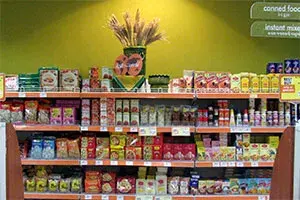By Rupin Chopra and Devika Mehra
“Legal metrology” refers to that part of metrology (i.e. the scientific study of measurement) which treats units of weighment and measurement, methods of weighment and measurement and weighing and measuring instruments, in relation to the mandatory technical and legal requirements which have been formulated with the object to ensure public guarantee from the point of view of security and accuracy of the weighments and measurements.
However, unlike the definition of Legal Metrology, the laws of Legal Metrology are not merely restricted to governing weighment and measurement, but they also focus on consumer awareness by mandating printing of certain compliances on the label of a package.
The Commonwealth Countries across the world have great similarity in their laws, since most of these countries have their roots coming from the United Kingdom. In Bangladesh, the Bangladesh Standard and Testing Institution (BSTI) strongly governs the legal metrology standards practiced across the country. Where in India, the compliances for Legal Metrology have been exhaustively covered under the Legal Metrology Act, 2009 and its Rules, the situation is Bangladesh is considerably different.
Labeling requirements or the Legal Metrology laws for products in Bangladesh are covered primarily under the following Statutes
- Packaged Food Labeling Regulations, 2017: The regulations establish technical standards for labeling of domestic and imported packaged food products, raw materials like additives, flavouring and coloring substance, allergenic good, baby food, genetically modified food, and mild product for human consumption
- The Bangladesh Standards of Weights and Measures (Packing and Commodities) Rules, 2007: These rules, as the name suggests, are mainly regulated by the BSTI.
- Food Safety Act, 2013: The standardization of imported products are checked to match with the standard of BSTI under this Act.
- Bangladesh Standards of Weights and Measures (Packing and Commodities) Rules, 2007: These include rules for packaged product selling in the retail market, wholesale market, import and export.
- Import Policy Order 2015-18: Covers the importing conditions for wine, beer and other alcoholic beverages which is overseen by the Director General , Narcotics Control Department, Ministry of Home Affairs.
Legal Metrology and Packaging Laws in Bangladesh- Important Highlights
- BSTI gives certification clearance to the imported products as a part of customs clearance.
- There are no special shelf-life requirements for products imported into Bangladesh. There are no specific rules for granting an exception to the regulation.
- There is no special labeling requirement for sample size of products or institutional product for the food service sector.
- The Government does not have any provision of health claims.
- There are no difference in rules for imported processed food, indicating that the exporting country will follow their packaging weight and measure rules for production and export to Bangladesh.
- All “Genetically Modified Food” must be added on the packing of Genetically Engineered foods. Bangladesh importers usually do not import products with GMO (Genetically Modified Organisms) labelling because most do not know the clearance procedure of GMO-labeled processed food products. The importers also fear that the product may not be cleared by customs as the approval process of processed food prepared with GMO ingredients is not functional in Bangladesh.
- Beer and wine of all categories can be imported by foreign exchange earning hotels only. In special cases, such goods can be imported with the approval of Ministry of Commerce prior permission from the Chief Controller, subject to a specified condition.
In light of the above, it can be established that though the laws in Bangladesh are not in stark contrast to those prevalent in India, there are certain aspects quite specific to the country of Bangladesh. However, the above checklist is what covers the Legal Metrology laws for exporting goods to Bangladesh. The practice of ensuring effective use of Legal Metrology laws is a big step towards maintaining healthy consumerism and consumer awareness, whilst keeping a strict check on the quality of the products whilst ensuring transparency from the producers, manufacturers and/or importers.
Related Posts


